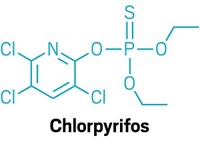Advertisement
Grab your lab coat. Let's get started
Welcome!
Welcome!
Create an account below to get 6 C&EN articles per month, receive newsletters and more - all free.
It seems this is your first time logging in online. Please enter the following information to continue.
As an ACS member you automatically get access to this site. All we need is few more details to create your reading experience.
Not you? Sign in with a different account.
Not you? Sign in with a different account.
ERROR 1
ERROR 1
ERROR 2
ERROR 2
ERROR 2
ERROR 2
ERROR 2
Password and Confirm password must match.
If you have an ACS member number, please enter it here so we can link this account to your membership. (optional)
ERROR 2
ACS values your privacy. By submitting your information, you are gaining access to C&EN and subscribing to our weekly newsletter. We use the information you provide to make your reading experience better, and we will never sell your data to third party members.
Environment
White House Moves To Save Bees
Pesticides: Federal agencies must advance strategy for protecting pollinators
by Britt E. Erickson
June 27, 2014
| A version of this story appeared in
Volume 92, Issue 26
Citing the “breadth, severity, and persistence” of losses of honeybees and other pollinators, President Barack Obama has ordered more than a dozen federal agencies to develop a plan for restoring pollinator populations. The new federal strategy could lead to changes in pesticide regulations.
Environmental groups and pesticide manufacturers alike are welcoming the President’s June 20 action. They are pleased that he acknowledges the multiple factors linked to declining pollinator health, including parasitic mites, poor bee management, inadequate nutrition from loss of forage lands, and pesticides.
But some environmental groups are continuing to zero in on pesticides, particularly a class of insecticides called the neonicotinoids, saying use of these chemicals needs to diminish to protect pollinators.
In a memorandum to federal agencies, Obama ordered the Environmental Protection Agency to assess the impact of all pesticides, including neonicotinoids, on pollinator health. EPA had already begun that assessment, but it now has a deadline of 180 days to complete the work and begin any necessary regulatory action.
The President also ordered EPA to expedite its review of new pesticide products that target pests, such as mites, that are harmful to pollinators.
Pollinators—bees, birds, bats, and butterflies—are disappearing from the environment, Obama’s directive says. “The problem is serious and requires immediate attention to ensure the sustainability of our food production systems, avoid additional economic impact on the agricultural sector, and protect the health of the environment,” it says.
The pesticide industry group CropLife America “is hopeful that this level of federal cooperation will help generate practical, science-based solutions for improving pollinator health,” says Jay Vroom, president and CEO of the organization. Vroom adds, “Ongoing research and field studies have consistently found no adverse effects on bee colonies when pesticides are applied according to label directions.”
Some environmental and consumer advocacy groups, however, are pressuring EPA to ban neonicotinoid pesticides because of their potential toxicity to bees. The White House announcement “is on the right track,” says Larissa Walker, head of the pollinator campaign at the Center for Food Safety, a public interest advocacy group. But “we need decisive action on pesticides.”






Join the conversation
Contact the reporter
Submit a Letter to the Editor for publication
Engage with us on Twitter